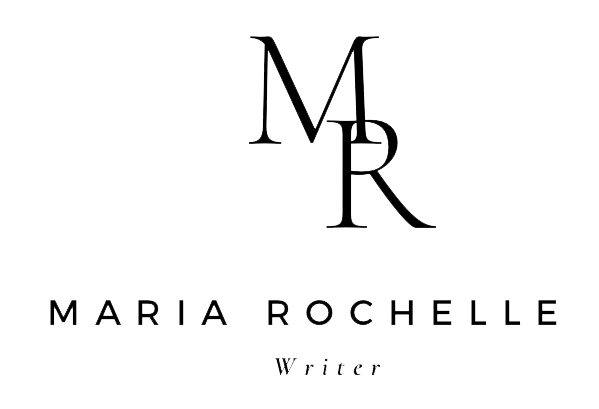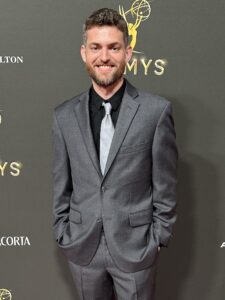
My newest chat is with Tyler Westen, a native of Los Angeles. He has written music for television, films, and video games for over fifteen years. The newest film he has composed will be out next month. We talk about his creative process for writing music and its challenges.
Introducing Tyler…
What do you love about your life right now?
Throughout my career, I’ve worked on close to 50 feature films, nine television series, and countless shorts, but the movie Finding Faith will be the first theatrically released film for which I’ve been the leading composer! It truly is a milestone that I will not soon forget.
Also, my girlfriend is moving in with me this month, so that’s pretty great too!
Your newest film, Finding Faith, for which you’ve written the score, will premiere on Father’s Day weekend (June 16th). Congrats, too, on being in theaters next month. How exciting! How did you get involved in scoring this film?
Thank you, we are all very excited for the film to be released in theaters!
Three years ago, in 2022, I saw an online ad for a Christmas film that needed a score ASAP. They had a tight deadline, and I didn’t know the director. But having just gone freelance, I decided to go for it, regardless of the tight turnaround time. That film was A Miracle Before Christmas directed by LazRael Lison, and in the following three years we’ve done four films together! Finding Faith is the culmination of that relationship.
What was your experience like in composing for Finding Faith?
One thing I love about working with LazRael is that he gives me a lot of creative room. In Finding Faith, there are two big moments (including the opening of the film) that didn’t have any temp music, so I had total creative freedom when it came to those scenes.
Based on the script and watching an early cut, I knew I needed to incorporate a spiritual/religious element into the score, something that evoked the power and emotion of Faith’s (the main character) journey. I decided to use a solo vocalist and a gospel-style choir to achieve that feeling.
Then, throughout the film, I incorporated and expanded upon those thematic elements. Having worked on three previous films together, LazRael gave me all the room in the world to come up with a unique and powerful opening for the film.
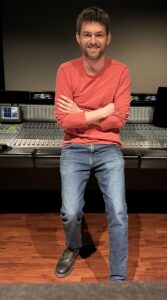
One reason I enjoy films is the film score. Braveheart is one of my favorite film scores. A film score is just as important as the actors and directors. I’ve enjoyed listening to your music, and your talent is exceptional. I especially love “Bank Heist” (Sonic 2), “Magic” from The First Descendant, and “Hitman’s Beach” from the film Free Guy. How do you compose for a film or a television show? What’s your creative process?
I love Braveheart, too! It has some great themes, which I think are missing from a lot of scores these days. So, I work really hard on my themes and do everything I can to make even the smallest cue musically memorable while still being appropriate for the story and the moment.
Part of my career journey has been to work with and study under some of the best composers in the business. For the above-mentioned projects, I was very privileged to be able to write for Junkie XL, Stephen Barton and Christophe Beck (respectively). That was a significant part of my professional development and really informed the following approach.
It all starts at the piano. I write music using a computer, but I compose themes on my piano. Once I have a theme that I’m happy with, I move back to my computer, flush out the orchestration, and actually score the scene. Sometimes, that means only using a small portion of the theme I’ve just written. But the initial idea provides the building blocks and the harmonic language for the rest of the score.
What are the joys and challenges of being a composer?
I get paid to write music! Haha.
In all seriousness, I’m incredibly fortunate that I’m able to support myself and make a career out of such a creative art form. And I truly love it, telling stories through music is incredibly rewarding.
As for the challenges, quite frankly, the hardest thing is finding new filmmakers to work with. The business is going through a major transition period right now. The old systems of how a film gets made are changing, but that does open room for new storytellers to find their place. Overall, I’m optimistic. We humans will never stop telling stories, and music will always be a part of that tradition.
Is there any advice you would give someone wanting to pursue a career as a composer? What would you have liked to have known when you started?
Be curious. Never be afraid to learn more and ask questions.
When you meet someone you want to work with, engage with them and learn about their life and their art. Go watch their movies, TV shows, or whatever they might have made. The minute you think you know everything, you reveal to the world that you know nothing.
So, do you have a favorite cue you’ve written for a film or show? Is that even possible?
It’s usually whatever I’m writing at the moment.
What I mean by that is you have to fall in love with your art, otherwise no one else will. I know that sounds cheesy, but you will always fail if you make art by trying to guess what someone else will like. Now, being a film composer by definition is writing music for someone else. But that doesn’t mean you can’t fulfill all the requirements of telling the story, dodging dialog, and hitting the cuts without creating a piece of art you are really proud of and have value on its own. In the same way, a single frame of film can be just as beautiful as an oil painting. The cinematographer is creating something that he loves that serves a greater story. I look at each piece of music that I write in that same way.
That being said, “Magic” from The First Descendant and the opening of Finding Faith are very special to me. Finding Faith is my most recent project, so by my rules, I’m allowed to love it until I write my next thing!
We all have experienced failure, and sometimes success follows it. I know it’s just part of our journey; we can learn from it. Do you have a favorite example or one you’ve learned the most from?
I have an enormous one, actually. In 2018, I hit a wall with my writing, for various reasons, I wasn’t moving past a certain point, and needed to change that. To his credit, Christophe Beck, whom I was working for at the time, recommended I go back to school. So I found an amazing USC professor and started taking private lessons with him once a week. I studied with him for three years, improving my writing and musicianship. I wouldn’t be the composer I am now without Christophe’s advice and rededication to my craft.
Suppose you have a gigantic billboard anywhere with anything on it. What message would you want to convey to millions? What would it say and why?
Take climate change seriously. We live on a fragile blue spaceship, and if we continue to mistreat that spaceship, the very systems that keep us all alive will cease to exist.
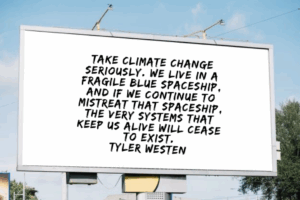
Describe yourself in one word.
Caring
Alright, Tyler. This next question is one of my favorite parts of the interview. Tell me three fun facts about yourself.
I’m a bit of an adrenaline junkie. I’ve gone skydiving, scuba diving, and driven cars on racetracks. I guess that’s why I love the film business so much—it’s one hell of a rollercoaster!
I’m an LA native, born and raised. I grew up in Brentwood, attended Occidental in Eagle Rock, and live in West Hollywood today. So, LA is very much home for me.
One of my cats sleeps at my feet every night.
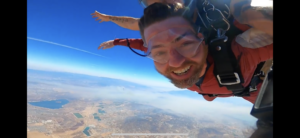
I would love to end the chat with a quote. Do you have a favorite quote or saying that has inspired and motivated you in your life that you can share with my readers?
Picasso once said, “Inspiration exists, but it has to find you working.”
There have been many times in my life when I’ve felt musically inspired, but not one of them was while I was sitting on the couch. You must engage with your craft, whatever it is that might be. The 100 bad ideas you have will lead you to the one good one that will suddenly come out of nowhere. But it won’t come unless you first work through the 100 bad ones.
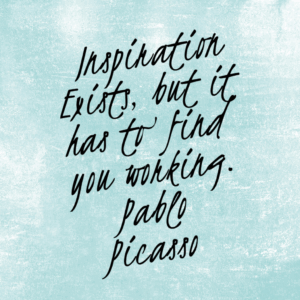
Thank you for reading my chat with Tyler.
Follow him on Instagram.
Check out his website.
